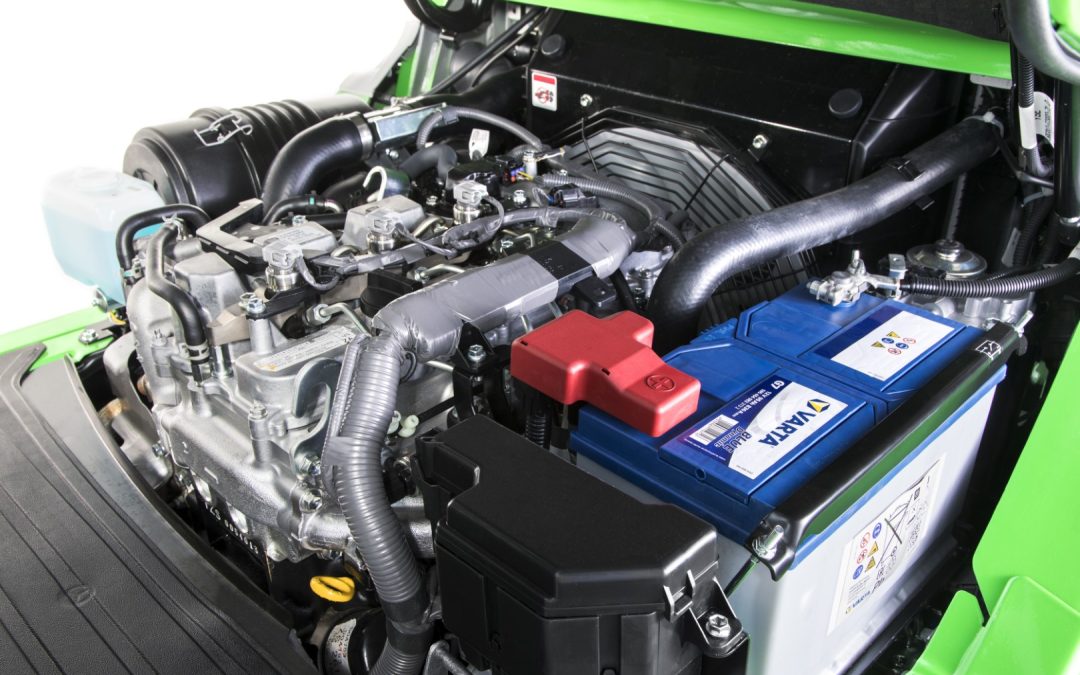Warehouse workhorses, forklift trucks are critical pieces of equipment for a wide range of operations where cargo needs to be transported quickly and securely. Leading brands making fork trucks today manufacture solutions with an impressive array of features and capabilities, but to ensure they operate efficiently and safely, forklift maintenance is a crucial requirement.
In the next sections, we’ll take a closer look at some of the different checks necessary for forklifts on-site and how an ongoing service contract can keep equipment operating at optimum.
General forklift maintenance for your trucks
Different types of forklifts will have their specific maintenance needs specific to their design however, the basic principles are for the most part, the same. Functionality tests must be performed to find out whether the equipment is operating efficiently.
At the controls, operators should put the forklift through its paces and assess whether it is responding appropriately. While traditional fork trucks must be tested for fuel leaks, electric fork trucks must be checked to ensure batteries are charging properly and have sustained no damage.
Taking the weight of the work, the forks must also be inspected. Any signs of significant damage such as bending or warping of the forks should be reported and remedied immediately to avoid more expensive and disruptive repairs later. At least once each month, the wheels and axles of all types of forklifts will require grease. Additionally, routine cleaning is also essential. Over time grit and grime can become lodged in wheels and negatively impact performance, unusual sounds emanating from below the forklift are a warning sign that they may have become clogged.
Forklifts should always be stored in a dry and sheltered area. When employed in wet conditions, they should be dried off after use. For prolonged use outdoors, plastic coverings can be used to protect forklifts from the elements. This is especially important for electric-powered models. Rust preventative oils can also be beneficial.
How can a forklift servicing contract help?
While day-to-day checks, best practices and routine maintenance are all vital elements of keeping fork trucks operating effectively. Regular servicing from a trained professional is also required to protect any investment in equipment.
The British Safety Council confirms that a yearly service is acceptable for forklift trucks that are used for approximately 40 hours per week. However, if a forklift is used for twice this amount of time, the Council’s advice states that services should take place three times a year to remain safe to use.
Selecting a forklift servicing contract can be exceptionally beneficial whether you require annual check-ups or more regular services. Quick and convenient, you can be sure that your equipment has been checked by a qualified professional and have the documentation to prove it. In the event of an accident or incident, you will be able to show insurance providers and health and safety inspectors alike that you’re operating with appropriate care.
A service contract means that you won’t need to keep track of when your forklifts were last serviced. The company handling your maintenances will keep a record of when it is time to inspect equipment and ensure you never miss a service.
Scheduled servicing planned in is always more effective than reactive maintenance when a forklift breaks down. Contracts offer preventative maintenance that can head off issues before they become bigger and more expensive problems. Along with the expense of replacing or repairing forklifts when they fail, inoperative machinery can disrupt workflow and decrease productivity at great cost.
Finally, a service contract can ensure that your forklifts are always working at optimum, and most options will also offer an additional emergency repair service as part of the package.
Get in touch with the team today to find out more.

 01282 842 678
01282 842 678